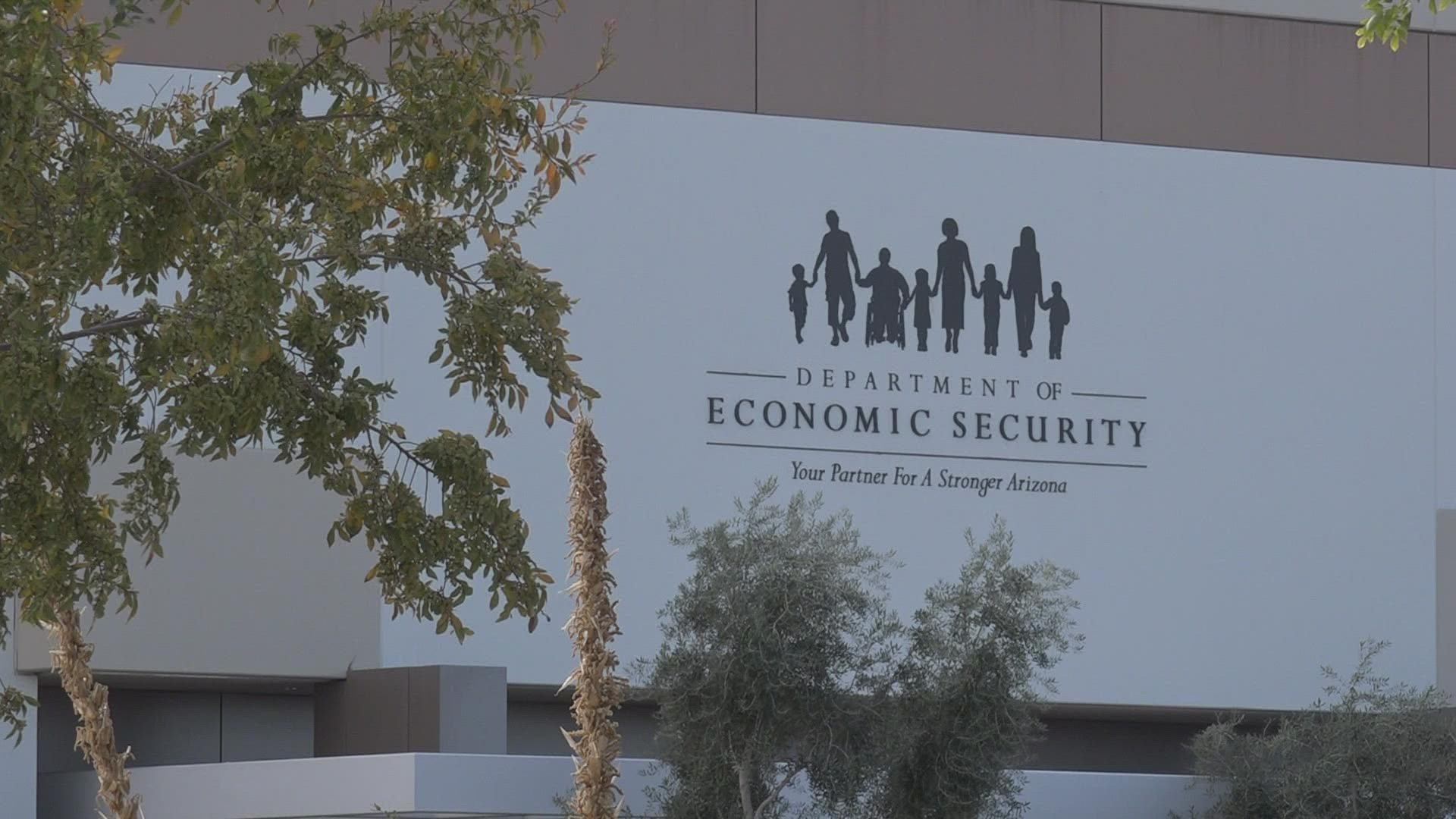PHOENIX — A new state audit is finding Arizona's Department of Economic Security continues to have issues with its unemployment insurance program.
Arizona's Auditor General released the report Tuesday night, which details several issues related to the financials of state agencies.
Among them, the Auditor General found DES overpaid billions in federal money to fraudulent claims and uncertainty if the department overpaid people millions more, while also saying DES was months late reporting the agency's financial information for the audit.
Potential overpayments unclear
The Auditor General's report said there are more than 108,000 Arizonans who DES paid more than the minimum benefit amount for unemployment benefits during the height of the pandemic.
The report adds DES still does not know if they potentially overpaid Arizonans by up to $218 million in federal money because DES is still determining if people qualified for the pandemic unemployment assistance program. However, DES recently told 12News that the department has had to cut staff because of a drop in federal funding.
The report also said DES did not establish overpayment processes until early 2022, months after the payments of the federal jobless benefits ended.
The Auditor General said that not only affects how quickly DES can recoup and repay overpayments, which they're required to do unless a waiver is granted, but "could be a burden to these claimants."
"As noted in the agency’s corrective action plans, work to address the Auditor General’s findings is well underway," a DES spokesperson said a part of an emailed statement.
'Who I think is responsible is the director'
Meanwhile, though, thousands of Arizonans are getting letters saying they are being told their case has been reviewed and the benefits they were approved for might have to get paid back.
Andrea Derk is among those who got such a letter. Derk was a musician when the pandemic hit and applied for PUA funds.
In the letter, DES claims Derk needs to provide documentation to prove employment.
However, Derk tells 12News that was sent years ago.
"I sent them substantial amounts of proof, including video and photo proof as well as copies of one of his very one of the only shows I ever did. It was a private party for a retirement and I was actually issued a check for that one," Derk said.
Derk is now appealing the decision
"What is the point in trying to take their money from me? When I wasn't making any money, and I barely make any money now," Derk said.
In a corrective action plan, DES said the agency considers "debt resulting from the establishment of an overpayment for a waiver."
But Derk believes the responsibility for overpayment lies with DES.
"Who I think is responsible is the director because he's the one who's overseeing everything. And he's the one who has to pretty much come down and answer for it," Derk said.
12News multiple and repeated requests to interview DES Director Michael Wisehart on overpayments and fraud in the unemployment system have been denied or ignored since August.
"The Department is sensitive to the impact overpayment situations can have on claimants, and we do all we can to assist in these situations while following federal and state laws," a DES spokesperson told 12News in part of a statement.
$4.3 billion paid in fraudulent claims
The report also said DES paid out an estimated $4.3 billion in fraudulent federal pandemic unemployment claims. Last year, the same report said DES estimated it paid out $4.4 billion in fraudulent claims.
The Auditor General reiterated findings from last year's report, saying that DES did not put in place critical identity verification or other anti-fraud measures in place before paying out the federal jobless benefits.
The report adds at least two of those mandatory requirements weren't put in place by DES until May 2022, 8 months after the benefits ended in September 2021.
"The reality is: Where did the money go? That's where we need to figure things out. They need to follow the paper trail of where all the money that they didn't send out to whoever they were supposed to not send it out to. That's where the money needs to be returned from," Derk said.
According to the Auditor General's report, 580 fraud cases have resulted in criminal charges from the benefits that were paid out to fraudulent claims.
"In response to the nearly insurmountable fraud entering into the PUA program nationwide, Arizona was one of the first in the nation to implement comprehensive fraud prevention and detection through identity verification and data analysis, and we continue to build upon our efforts to investigate fraud and recover benefits issued on fraudulent claims in accordance with findings of the Auditor General," a DES spokesperson said in part of an emailed statement to 12News.
Up to Speed
Catch up on the latest news and stories on the 12News YouTube channel. Subscribe today.

